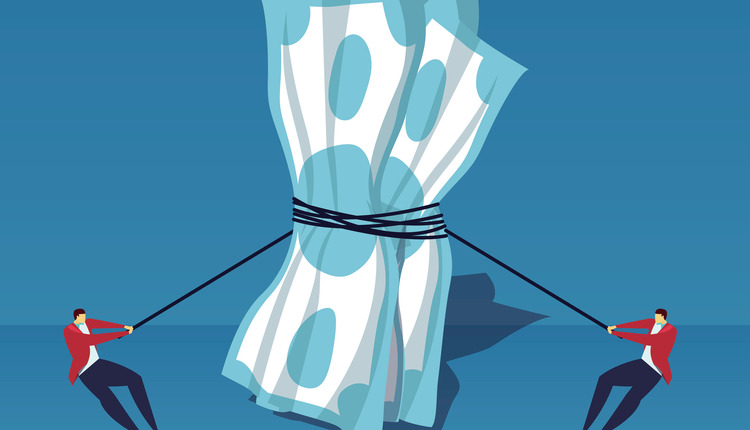Deadlines, interruptions, upset customers, unreliable employees, mistakes. Is this how it is in your world? Are you steaming because your boss just yelled at you or a customer complained? Did you sleep well last night? Do you have teenagers? Are you struggling to make ends meet with the high cost of fuel and the number of people losing their homes and jobs? In this day and age, it is no wonder that most of us are experiencing stress at increasing rates. It affects our work performance, our families and our happiness. Most organizations never broach the subject, and many managers intentionally create additional stress out of a false belief that it will motivate their workforce.
Job stress has been linked with everything from loss of sleep, depression and heart disease to decreased productivity, missed work days and violent behavior. A Gallup Poll found that:
80% of workers feel stress on the job, nearly half say they need help in learning how to manage stress and 42% say their coworkers need such help;
14% of respondents had felt like striking a coworker in the past year, but didn’t;
25% have felt like screaming or shouting because of job stress, 10% are concerned about an individual at work they fear could become violent;
9% are aware of an assault or violent act in their workplace and 18% had experienced some sort of threat or verbal intimidation in the past year.
Stress is a serious problem that is affecting the vast majority of us. An estimated 75% to 90% of visits to primary care physicians are for stress-related complaints. Physical symptoms of stress can include headaches, gastrointestinal complaints and backaches, while the emotional fallout of chronic anxiety includes impatience and temper outbursts, often felt by those we live and work with. The New York Times reports job stress costs the American economy $1 trillion every year, and National Institute for Occupational Safety and Health states that the health costs contributed to job stress are $200 billion annually.
Substantial scientific research has shown that stress reduction programs produce dramatic improvements in cognitive function, emotional well-being and physiology. Organizational benefits include reduced employee turnover, increased employee satisfaction and engagement, improved customer loyalty as well as greater productivity.
The first step in reducing stress is to become aware that you are stressed. TV psychologist Dr. Phil’s life law #4 is, “You cannot change what you do not acknowledge.” How are you feeling right now? Is your jaw tight? Do you have a knot in your stomach? Have you been unable to get a good night’s sleep? Are you eating or drinking too much? Or taking mood altering drugs? Do you feel constantly worried or anxious? Can you acknowledge that you are feeling stressed?
In some circles, managers believe that pushing employees will make them more productive. I had a boss once that did everything to encourage his salespeople to get bigger cars, new clothes, nicer furniture and elaborate vacations so that they would take on more debt. He assumed that they would work harder and thus sell more to pay off their bills.
It is ironic that the opposite is the truth. We perform much more effectively when we are relaxed. The challenge is if you are in a culture that perpetuates stress, if you publicly admit that you are stressed, management may look at you as weak, incompetent, fragile or unable to perform the job. Regardless of the falsehood, these characterizations can reduce your chances of a promotion, bonus or raise. So even if you can honestly acknowledge your stress to yourself, the pressure is to cover up and act like everything is fine, which actually increases stress. If you work in an environment like this, unfortunately, you will have to work on this covertly. The good news is that this is possible. And at the same time, we need to educate managers that induce stress as a management tactic on the impact that stress has on people and to consider changing their perspective.
How to Reduce Stress
Researchers have consistently found that meditation can significantly reduce stress. Now when many people hear the word meditation, they think of eastern religions and bearded yogis sitting cross legged. While for many people meditation may be a path for enlightenment, it is also a scientifically proven method that reduces stress, anxiety, depression, heart disease and digestive problems. An article in Psychology Today stated that “Recent research indicates that meditating brings about dramatic effects in as little as a 10-minute session.”
Really, meditation is basically taking a few minutes to close your eyes, breathe deeply and relax. A psychologist friend of mine that works with stress shared with me a technique that he called the “one-minute vacation.” Here is how it works. Sometime when you are alone and not likely to be interrupted, find a comfortable chair and sit with both feet on the floor. Close your eyes and place a hand on your abdomen. Take five deep breaths, breathing through the nose, and exhaling slowly. The abdomen, rather than the chest, should rise and fall with each breath. Mentally, scan your body and observe areas that feel tense, such as your neck and shoulders. Let go of as much tension as you can. Silently, tell your muscles to relax. Then, visualize a pleasant place where you were completely relaxed. Perhaps it was a vacation spot on the beach. Recreate the situation as vividly as you can, smelling the ocean, tasting the salt, feeling the heat of the sun, hearing the waves. Just continue to breathe slowly and feel the tension melt away. After a few minutes of enjoying this mental vacation, you can stop and just tell yourself that you will remember your special place. Now, the next time you are feeling stressed at work, just find a place where you can go and close your eyes for just a minute. Take five deep breaths and remember your special place. This will take about a minute and you will feel much better afterwards.
Taking the short amount of time out for this exercise will help you have more energy and patience, and it will make you feel centered. Go ahead, give it a try. And, if you find that it works for you as it has for millions of others, you may want to learn more about meditation and developing a regular practice. Of course there are many other ways of reducing stress. Exercising regularly and therapy also have proven to be effective. Reducing stress in your life will have profound benefits on your productivity, health, family relations and quality of life.
Mark Taylor is a businessman, entrepreneur, author, and speaker currently living in New York City. He has been named a Distinguished Logistics Professional (DLP) by the American Society of Transportation & Logistics. Contact him at mark@redroller.com.











